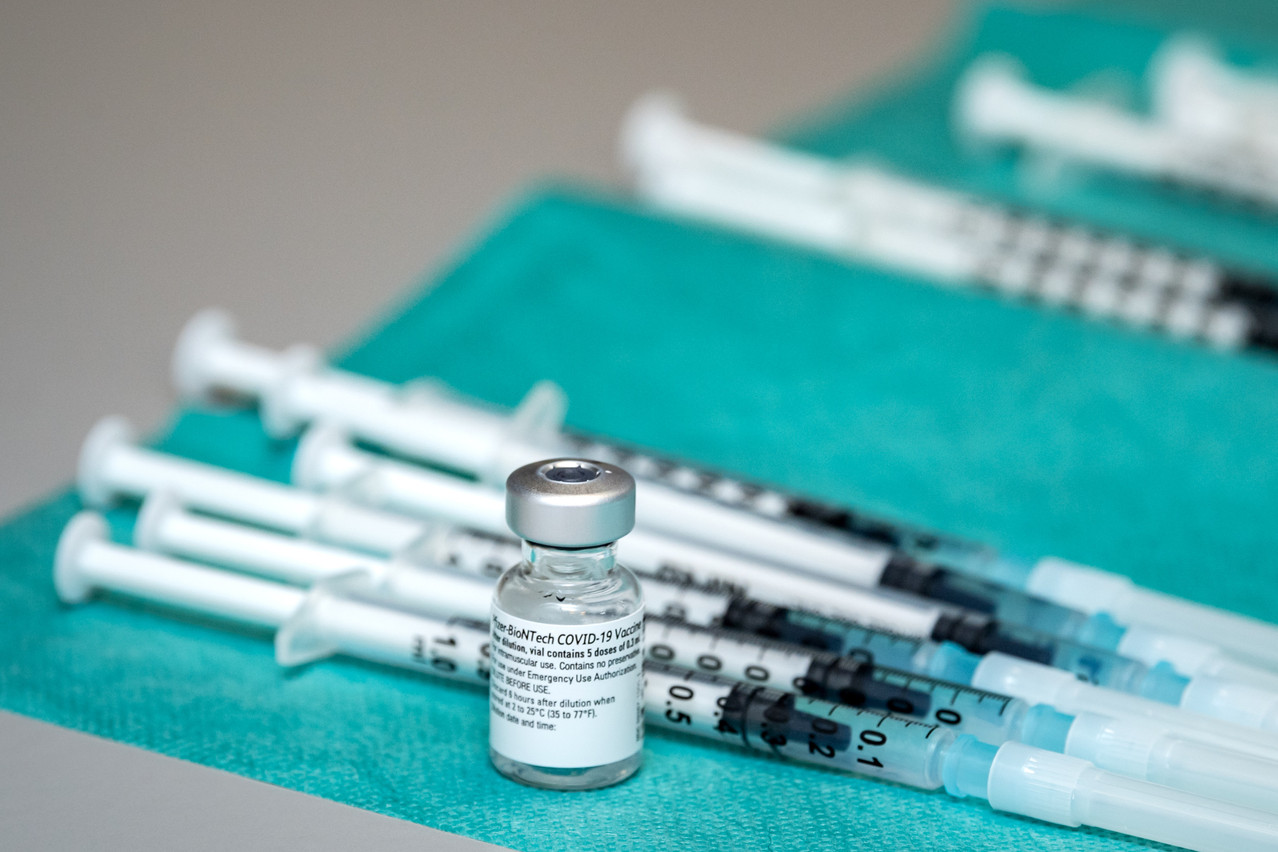Lenert spoke during a press conference as Luxembourg is seeing record infection numbers, which more than doubled last week compared to the end of 2021. On Thursday, the latest data available at the time of publication, more than 12,400 infections were considered active.
“It’s a lot,” said Lenert. “We are in a scenario as we expected it. It would have been surprising if it had taken a different course in Luxembourg than in countries confronted with the variant earlier.”
Countries around the globe have been posting infection records these last weeks as the omicron variant advances and replaces delta as the dominant mutation of Sars-CoV-2.
In the latest report on virus sequencing by the national laboratory LNS, more than a third of cases (34.9%) in Luxembourg were caused by the omicron variant between 20 to 26 December.
Booster jabs increase protection against the new variant and the government on Friday decided to reduce the interval between the first inoculation and the additional dose to three months as a result. The over 12s age group will also be invited starting next week, Lenert said.
Details on hospital patients
Thérèse Staub of the CHL hospital said that in one to two weeks she expects all cases to be linked to omicron. Of the 13 patients at the hospital, seven were diagnosed with the omicron variant, she said.
Between 27 December and 2 January, 22 out of 47 people receiving treatment in hospital were not fully vaccinated, compared to 14 to 20 patients in intensive care. However, Staub said that vaccinated people who are hospitalised are usually older, immunocompromised or suffer from other illnesses and risk factors.
Unvaccinated patients in the ICU are 10 to 15 years younger than those who are vaccinated, said Christophe Werer, also of the CHL, while those vaccinated have usually not received their booster jab.
He also said that other factors jar the numbers. For example, patients admitted to the ICU for other reasons, such as an accident, but tested positive for the coronavirus upon admission are then considered covid-19 patients.
Vaccination “best protection”
“There is no doubt that vaccination is the best protection were currently have to avoid a severe or deadly course of illness,” Werer said. Around a third of the hospital’s beds are continuously occupied by covid-19 patients, he explained, adding that this is a substantial effort.
“Nobody should take covid lightly,” he said, adding that one in three patients in intensive care dies.
“In all our hospitals everything is being done to use our resources as best as possible,” said Marc Berna of the Robert Schuman hospitals groups. The doctors at the press conference all spoke of a huge burden facing hospital staff who have been battling the pandemic for the better part of two years.
“It’s a phenomenon we’ve noticed increasingly in the last weeks,” Berna said of staff absences, both because of covid-19 but also exhaustion and other illnesses. “An effort by the entire society is needed and must include all measures to reduce the number of covid patients,” from distancing and masks to vaccination, Berna said.
A doctors’ association on Thursday had supported a as a debate on the topic is pending in parliament. Prime minister Xavier Bettel (DP) on Friday said the cabinet had decided to ask a team of independent experts to advise the government ahead of the debate.
Around 75% of the entire population has received at least their first vaccination jab, Lenert said on 8 January. For those aged 12 or over, the rate is at 85%. Around 3,500 appointments are scheduled for first vaccinations until 5 February, Lenert said.
